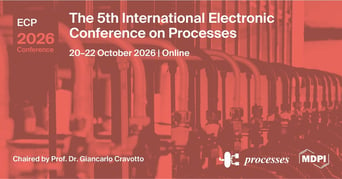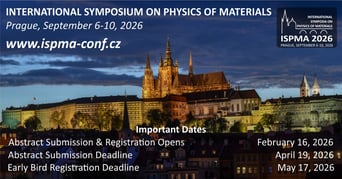- 3.2Impact Factor
- 6.4CiteScore
- 16 daysTime to First Decision
News & Conferences
Latest News & Announcements
Latest Conferences
Propose a Conference Collaboration
Promote and publicise your upcoming conference with MDPI.
All News & Conferences
Partner Conference
3rd International Congress on Materials Science and Engineering 2026 (Materials Europe 2026)
15 July 2026 - 17 July 2036
News & Announcements
Interview with Mr. Pietro Tordi—Winner of the IOCM 2025 Best Oral Presentation Awards
6 February 2026
News & Announcements
Acknowledgment to the Reviewers of Materials in 2025
4 February 2026
MDPI Conference
The 5th International Electronic Conference on Processes
20 - 22 October 2026
News & Announcements
MDPI INSIGHTS: The CEO's Letter #31 - MDPI 30 Years, 500 Journals, UK Summit, Z-Forum Conference, APE
2 February 2026
Partner Conference
International Symposium on Physics of Materials (ISPMA2026)
6 - 10 September 2026
News & Announcements
Materials | Interview with the Newsletter Author—Prof. Dr. Jean-Marc Tulliani
28 January 2026
News & Announcements
Materials | Interview with Two of the Newsletter Authors—Ms. Olivia H. Margoto and Dr. Grant R. Bogyo
28 January 2026
News & Announcements
Meet Us at the TMS 2026 Annual Meeting & Exhibition, 15–19 March 2026, San Diego, California, USA
28 January 2026
News & Announcements
“Do Not Be Afraid of New Things”: Prof. Michele Parrinello on Scientific Curiosity and the Importance of Fundamental Research
22 January 2026
News & Announcements
Prof. Xin-Gao Gong Appointed Chair of the Michele Parrinello Award Committee
22 January 2026
News & Announcements
Materials | Interview with the Newsletter Author—Dr. Sheila Devasahayam
19 January 2026
of 50








